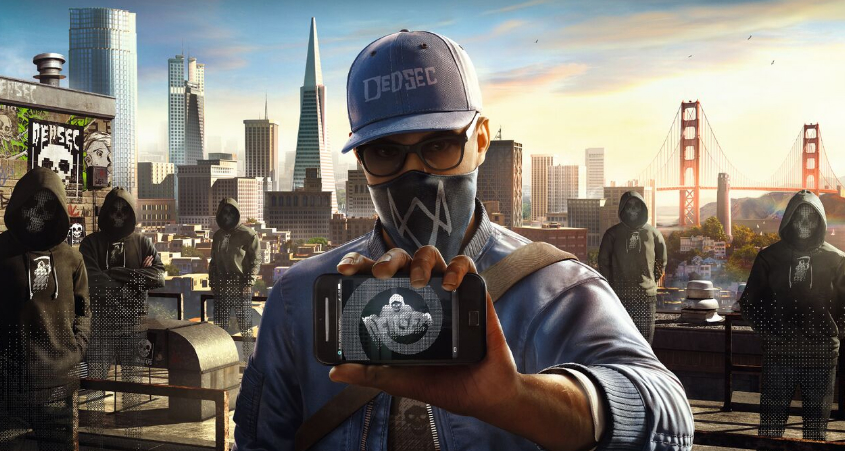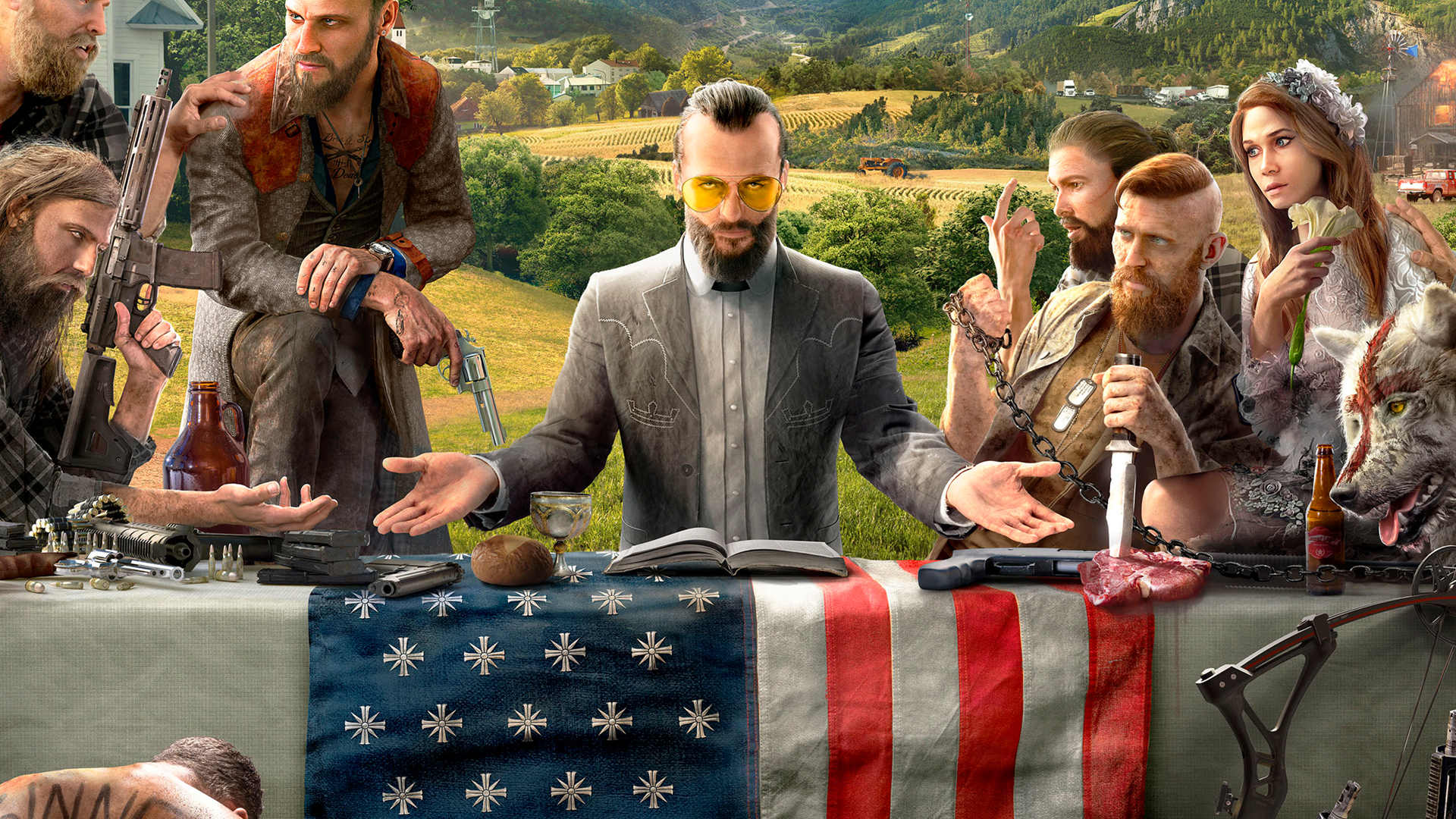Ubisoft continues to insist that it doesn't make political videogames, just 'mature' ones
Editorial VP Tommy Francois said avoiding politics is part of making 'more mature' games.

Ubisoft, the company that brought you a clash of survivalists and religious extremists in rural Montana, hackers taking down powerful high-tech corporations, and out-of-uniform soldiers gunning down looters in Washington DC in the name of freedom, has said more than once that it does not make political games. But what does that mean, really? In a new "Inside Ubisoft" Q&A, vice president of editorial Tommy Francois does his best to explain.
"Yves [Guillemot, Ubisoft CEO] has told us that our goal is to give players all the information we can, and then let them choose which sides of our game worlds they want to explore. We want them to decide what they like, what they don't like, and if and how to change their minds or the way they play based on that information," Francois explained. "It's about more freedom for the players."
Ubisoft's goal is to create games that "offer a 360-degree view of life, [and] should let people interact with all points of view," Francois said. If he was making a game about the Vietnam War, for instance, he'd want to include perspectives from the Viet Minh and Viet Cong as well as American soldiers. "And that relates back to people making up their own opinions and our ability to create more mature games that are nuanced, versus being black or white," he wrote.

That commitment to all perspectives could lead to some potentially ugly places—Hey, maybe the Nazis weren't all bad!—but Francois said that broadly speaking, there are no off-limits taboos that the company simply will not engage with. In fact, he said that development teams have to fight the urge to self-censor, and that Ubisoft chief creative officer Serge Hascoet has told developers to "push" him on sensitive topics and "make us consider whether we should censor you, because it would be proof that you're saying things."
It's a curious and kind of confusing message: Ubisoft doesn't want to make political games, but it also wants games that say something. Francois tried to clarify the position by saying that Ubi isn't aiming for "apolitical" games, but rather games that "include multiple political themes so players can experience multiple points of view, learn from them, educate, and share." And if players don't want to get into any of that, that's just fine.
"People who just want to have fun, and not be exposed to these points of view, or experience it on a deeper level should be able to do what they want," he said. "I want games that give players full autonomy. If someone just wants to have fun, let them have fun."
It's an interesting claim to stake, but it doesn't hold water. Many of Ubisoft's biggest games have overtly political settings—Far Cry 5's "heavily-armed religious fundamentalists in backwater America" wasn't pulled out of a hat, and the current rumor has Watch Dogs Legion set in post-Brexit London—and they very clearly delineate the good guys from the bad guys, with a specific role for players to fill.
The biggest gaming news, reviews and hardware deals
Keep up to date with the most important stories and the best deals, as picked by the PC Gamer team.
Yes, you can just bomb around Hope County blowing things up at random from the back seat of Hurk's busted-up shitbox if you want, but you never stop being Deputy Rockfist Guncrotch, the one person in all the land who can put a stop to the cult that's kidnapping, torturing, enslaving, and murdering hundreds of innocent people. And if you want to make any meaningful progress in the game, that's what you have to do. It's baked in, and it's not subtle.
Despite wanting to remain above the fray, Francois does have some clear points of view about Ubisoft's games. For instance, he hopes very much that the portrayal of a cult in Far Cry 5 doesn't actually convince anyone that cults are cool and they should join one. "But that's why I would love for people to see more granularity in points of views and see the pros and cons of any type of situation," he said. He also likened videogames to the famous parable of blind men trying to describe an elephant by touching just one of its parts, which eventually leads into a beef over who's right.
"But some dude walks in the village and tells them, 'You're all right. None of you have the larger picture.' I think videogames can give people the larger picture. I think we need to bring a larger perspective on this," he said. "We need to be about problem solving. We need to be about taking a step back, and making people understand that nothing is simple in life. But that's cool. That's why it's interesting. And that's why games can be more interesting."

Andy has been gaming on PCs from the very beginning, starting as a youngster with text adventures and primitive action games on a cassette-based TRS80. From there he graduated to the glory days of Sierra Online adventures and Microprose sims, ran a local BBS, learned how to build PCs, and developed a longstanding love of RPGs, immersive sims, and shooters. He began writing videogame news in 2007 for The Escapist and somehow managed to avoid getting fired until 2014, when he joined the storied ranks of PC Gamer. He covers all aspects of the industry, from new game announcements and patch notes to legal disputes, Twitch beefs, esports, and Henry Cavill. Lots of Henry Cavill.


